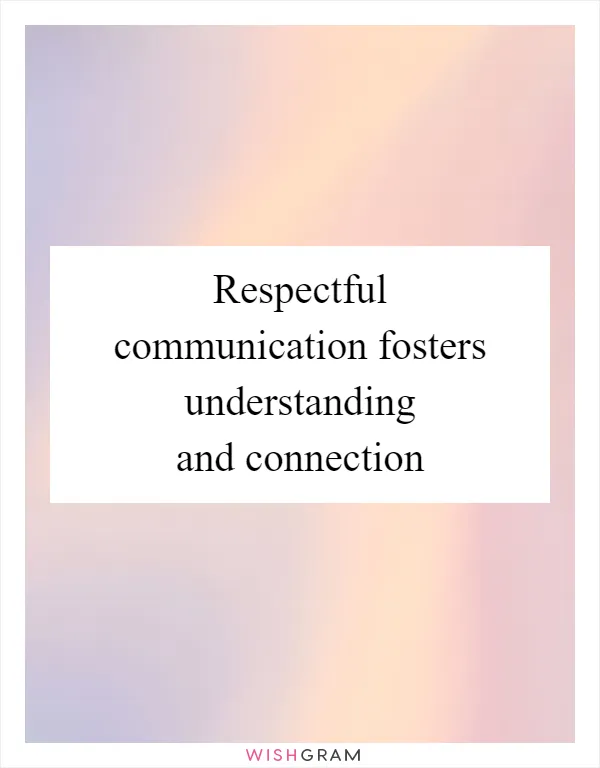Respectful communication fosters understanding and connection
Respectful communication is an essential aspect of building strong relationships with others. When you communicate with respect, you create an environment that fosters understanding and connection. This affirmation is a reminder that the way we communicate with others can have a significant impact on the quality of our relationships.
When you communicate with respect, you show that you value the other person's thoughts and feelings. You listen actively and respond thoughtfully, rather than interrupting or dismissing their ideas. This type of communication creates a safe space for people to express themselves and feel heard.
Respectful communication also helps to build trust. When you communicate with respect, you demonstrate that you are trustworthy and reliable. This can help to strengthen your relationships with others, as they feel confident that they can rely on you to be honest and respectful in your interactions.
In addition to fostering understanding and connection, respectful communication can also help to resolve conflicts. When you approach a conflict with respect, you are more likely to find a solution that works for everyone involved. This is because you are focused on finding a mutually beneficial outcome, rather than simply trying to "win" the argument.
Respectful communication can be challenging at times, especially when we are feeling frustrated or upset. However, it is important to remember that the way we communicate can have a lasting impact on our relationships. By taking the time to communicate with respect, we can build stronger, more meaningful connections with others.
One way to practice respectful communication is to focus on active listening. This means paying attention to what the other person is saying, rather than thinking about what you want to say next. It also means asking questions and clarifying any misunderstandings, rather than making assumptions.
Another way to practice respectful communication is to use "I" statements instead of "you" statements. For example, instead of saying "You always do this" you could say "I feel frustrated when this happens". This approach helps to avoid blaming or accusing the other person, and instead focuses on your own feelings and experiences.
